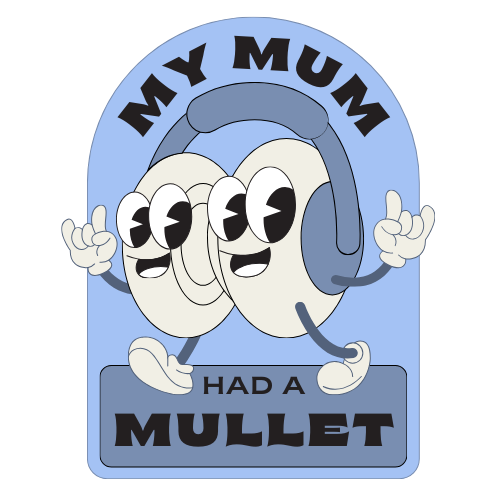An open love letter to college radio
College radio has silently been shaping the music industry for more than a century.
The Slim Radio broadcasting studio (in World Cup season).
Almost an hour after I leave my house, past the river that isolates Amsterdam Noord, I walk up the metal steps into the cramped studio room. I’m surrounded by nicknacks, a fridge, a mannequin torso, and gear. I sit in my squeaky chair, adjust the mic, put on my headphones, and start talking.
Although Slim Radio is not *technically* college radio, the ethos is the same. Freedom in what I say and play, a close community within the very confusing city that is Amsterdam, and an undying support for local artists.
College radio is, naturally, almost as old as commercial radio. Popularised in 1948 but starting as early as 1917, they were ways for students to experiment and share the music they liked that wasn’t shared anywhere else.
These stations are a place of purity. Free from the commercial obligations of mainstream radio stations, the hosts can simply play what they like, what excites them. They are fuelled by that innocent, almost child-like tendency to say “look at this cool thing I found!” Their faith in and love for music is what keeps the industry moving forward.
With its heyday in the 70s, 80s, and 90s, it made way for the birth of punk, disco, grunge, hiphop, new wave, alternative rock, indie rock — pretty much anything.
“College radio shapes the zeitgeist, whether you realise it or not.”
Were it not for college radio stations, bands like Nirvana, The Smiths, R.E.M., Violent Femmes, and The Cure would have taken much longer to become successful — or would have never seen the light of day at all. Anything that deviates from the safe, easily-sold options that mainstream radio stations adored, was adopted by college radio hosts.
It makes sense: university students didn’t want to listen to the same things that their parents did, they were drawn to smaller, more up-and-coming artists. Soon enough, labels caught on and started taking notes from college radio hosts’ discoveries. They embraced the weirdness and the joy that comes from experimentation.
In the case of Violent Femmes, for example, no station wanted to play their music and no label wanted to sign them. But with the approval of college radio, they grew a strong local fanbase and now have one of the most famous opening guitar riffs of all time.
This faith, this innocent sharing of new art leads not only to the global success, but it sparks movements. College radio shapes the zeitgeist, whether you realise it or not. Before major corporations catch up, college radio is there, in the clubs, in the shows, hanging out with the local musicians, lending an ear. Maybe it doesn’t even realise it’s doing it until it looks back and says the old classic phrase: “I knew this band before they were big”.
It breaks through the traditional gatekeeping systems and exposes the world to new, exciting acts that have been overlooked by major stations. They broadcast music and give it a platform before they become commercial hits. It’s a melting pot of genuine human interest and curiosity, a place run by people fuelled only by a love of music.
It’s an escape from the general bullshit of the industry. The bureaucracy, the obligations, the deals, the contracts. It’s a place of freedom, of expression, of excitement. The power of college radio lies in that. It can shape the future of music, as it has since its beginning.
“It’s a melting pot of genuine human interest and curiosity.”
In a time of overwhelming choice in content, there is something nice about someone choosing what you listen to once a week. You pop on your headphones or turn on your speakers, and listen to someone who spends far too much time hyper-focusing on specific artists, songs, albums, or genres (like me).
College radio puts itself out there to find new music that hasn’t been an established success yet. And this is crucial. The industry needs these people who look beyond what is already trending, to sift through the over-saturated commercial successes, to find something new, weird, and exciting. It’s what propels the world of music forward.
So here’s to college radio, silently moving the industry along and taking chances on new acts. That excitement has to be preserved. That curiosity, the fact that we’re doing it for the sake of doing it. Not to make money (because we don’t), but because we are driven by a genuine desire to show the world what we have found. For as long as this desire is alive, so is college radio.

